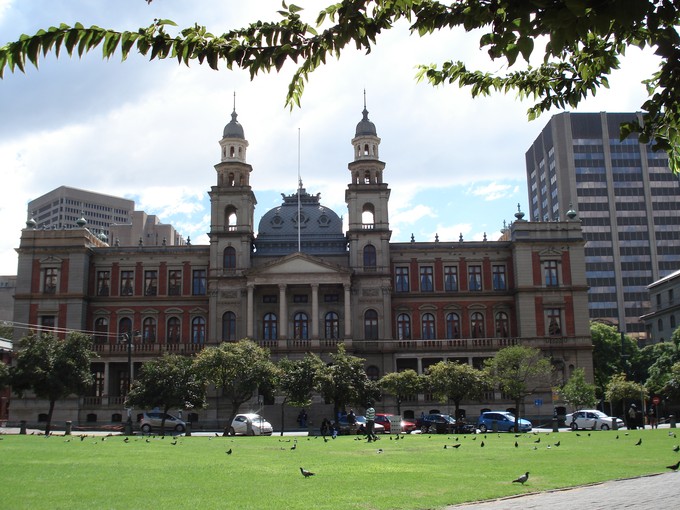
Palace of Justice in Pretoria, location of the Gauteng High Court where a settlement was reached between traders, developers and the City of Tshwane. Photo: Wikipedia user Cvanrooyen (CC BY-SA 3.0)
13 February 2017
After two urgent applications and weeks of negotiation, the informal traders at the Mamelodi Denneboom Metrorail station have reached a settlement with the City of Tshwane and the developers of a new mall.
The Denneboom station traders have been based at the station for over 60 years. However, their trade was about to be interrupted by a new mall being developed on the property. Despite the fact that the development would displace the traders, neither the developers nor the City consulted the traders about the future of their businesses. In an effort to get the informal traders to relocate, the developers cut off electricity and water to the property and removed the paving, disrupting trading.
The traders, represented by Lawyers for Human Rights, successfully obtained an interim interdict on 3 February, to stop the developers from interrupting their trade. The traders returned to court on 7 February to compel the City to reconnect their water and electricity.
After negotiating with both the developers and the City, the traders have agreed to a settlement that will see them relocating to a temporary trading facility while the development is underway.
In terms of the settlement agreement, reached in the Gauteng High Court in Pretoria, the developers are also prohibited from demolishing the trader structures, whether informal or fixed. The City and developers are required to make containers and trading spaces available to all Denneboom traders along with communal water and electricity.
Perhaps the biggest victory for the traders, however, is that they must be consulted on the design, location and conditions of the trading areas they will occupy at the new mall. In terms of the court order, the developers are required to ensure that the trading conditions will be comparable to the current trading area.
Lawyers for Human Rights commended both the developers and the City for engaging with the Denneboom traders to reach a compromise quickly. The City and developer’s willingness to negotiate with the community meant that the case could be resolved without lengthy litigation, allowing the traders to resume their business and the developers to begin building.